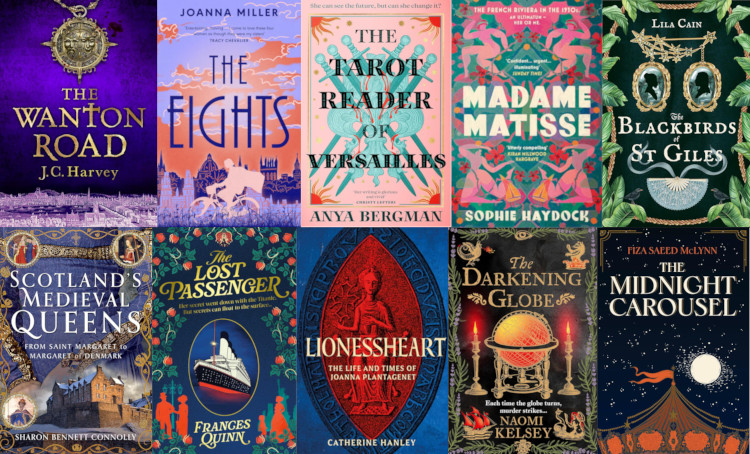
Welcome to Historia’s most popular regular feature, our round-up of historical books published by members of the Historical Writers’ Association (HWA) to look out for during the coming year.
In 2025, there are over 130 books covering history, biography, and historical fiction and spanning eras from Ancient Greece to the 1980s.
And there will be more. We’ll update this list when further information about new books is available, so do come back and see what’s been added.
January
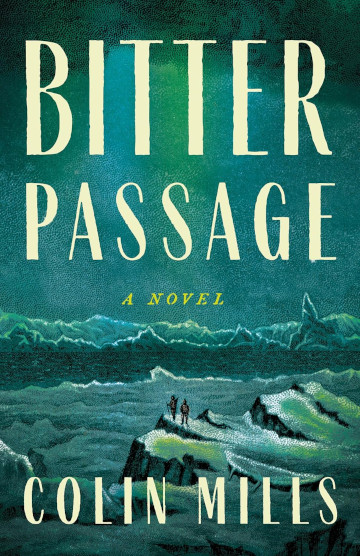
This year’s first book is Bitter Passage by Colin Mills, out on 1 January, 2025. In 1845 Sir John Franklin left England to seek a navigable Arctic transpolar route. He and his crew never returned. Four years later, RN Lieutenant Frederick Robinson and Assistant Surgeon Edward Adams are determined to find the missing men. They struggle against not only the elements, but each other, as loneliness, starvation, and isolation prove just as deadly.
Two books are are published on 2 January. In The Socialites by Caroline Lamond three convent girls from London go on to change the world. Maureen, the movie star, whose role as Tarzan’s Jane helped rewrite the cinema censorship rules. Sonia, the aspiring writer who became George Orwell’s wife and guarded his literary legacy. And Vivien, the actress as iconic as the roles she played, from Cleopatra to Scarlett O’Hara.
In The Serpent Under (A Sherlock Holmes Adventure 6) by Bonnie MacBird Holmes and Watson take on a high profile case at Windsor Castle, a boy drowned in the Serpentine, and a women’s rights activist who suspects a traitor in her organization. Danger waits for them — at the palace, a dockland cannery, an arts and crafts atelier, and a Gypsy encampment. But are they also in peril at 221B Baker Street?
Betrayal of Mercia continues MJ Porter‘s Eagle of Mercia Chronicles on 5 January. Londonia in 835, and Wiglaf of Mercia’s position is precarious. His queen is implicated in the plot against Ealdorman Coenwulf’s children. Meanwhile, Æthelwulf, Ecgberht of Wessex’s son, is watching Mercia, whose ruling bloodline he plots to destroy. Can Icel and his fellow warriors triumph as Mercia faces betrayal — from within?
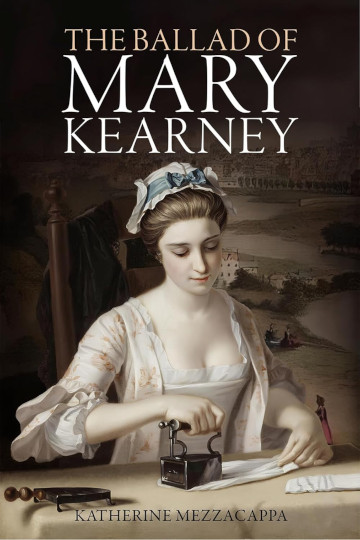
On 7 January, Michael Jecks returns with Death Comes in Threes, a Bloody Mary Tudor Mystery. Jack Blackjack’s busy in August, 1558. His new tenant disappears, and his female companion is found dead.
Jack soon becomes the most likely culprit. With both the law and the unlawful on his trail, nowhere is safe for Jack to hide. How can he prove his innocence — and uncover the murky truth?
The Ballad of Mary Kearney by Katherine Mezzacappa is published on 14 January. In County Down in 1767 Viscount Kilkeel secretly marries Mary Kearney, a 17-year-old servant; the Penal Laws forbid a Protestant like him to marry a Catholic. As the calls for Irish liberty in Ireland grow, Kilkeel joins the United Irishmen, but their rising in 1798 is brutally put down. Can forbidden love survive even this?
On the same day, Murder at the Art Gallery, Fiona Veitch Smith‘s fifth Poppy Denby Investigates novel, is reissued. Newcastle in 1924, and reporter Poppy Denby visits her Aunt Dot. But Dot’s friend Agnes, a famous artist, is implicated in a murder — from 27 years ago. The more Poppy digs into the story, the more she is convinced that Agnes isn’t the killer… but that means there is still a murderer on the loose.
January 16 sees the paperback edition of Matthew Harffy‘s Dark Frontier published. In 1890 Lieutenant Gabriel Stokes, longing for peace and meaning, heads to the American West — but finds as much violence there as he met with in the army in Afghanistan and in the Met Police. Can he escape his past and the demons that drive him to find a place for himself on the far edge of the New World? Matthew tells Historia about his experience of writing a Western — and how it’s not that different from his earlier novels.

The Train That Took You Away by Catherine Hokin is published on January 20. When Esther Spielmann’s husband and father are murdered on Kristallnacht, she has to send her beloved son, Sascha, away from Berlin. Esther, though, is sent to a concentration camp — but survives. Can she ever find Sascha in the aftermath of war? And if they do meet again, will either of them be prepared for what they find? Catherine is writing Historia a feature about the Kindertransport and other responses to the refugee crisis.
Out on 23 January, Flora Johnston‘s The Endeavour of Elsie Mackay takes us to 1927, when flight fever is high. Former film star Elsie Mackay wants to be the first woman to fly the Atlantic. Her friend Stella Campbell is worn down by post-war disappointment, marriage and motherhood. Stella’s sister Corran guards her secrets closely. This is the story of three women straining to reach for their different dreams.
The third in Griff Hosker‘s Conquest series, Rebellion, is out on the 24th. When Edgar Ætheling, great-nephew of Edward the Confessor and former contender for the English throne, raises the banner of rebellion in the north of England, he unleashes a bloodbath that will last generations. Richard Fitz-Malet finds himself in the middle of the conflict. Half English and half Norman, where do his allegiances lie?
Six books are out on 30 January. Scotland’s Medieval Queens by Sharon Bennett Connolly shows how, from St Margaret to Margaret of Denmark, Scotland’s queens dealt with war, murder, imprisonment, political rivalries and open betrayal. Over the centuries, they loved and lost, raised kings and queens, ruled and died for Scotland. This is the story of Scotland through their eyes. See more about the queens who inspired Sharon’s book.
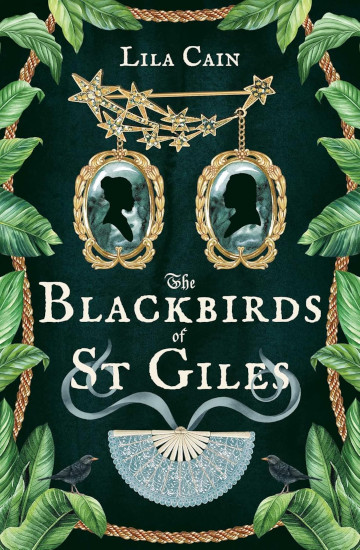
It’s 1782 in The Blackbirds of St Giles by Lila Cain (Kate Griffin and Marcia Hutchinson), and Daniel, a freed slave, and his sister Pearl arrive in London — but end up in the violence and poverty of St Giles’s rookeries, where the violent Elias rules all. But a brotherhood of Black men, the Blackbirds of St Giles, fight to free their people. Can they, and Daniel, overthrow Elias and at last find true freedom? Read Kate’s feature about the rookeries, the true story behind this book.
Still on the 30th, The Artist by Lucy Steeds is set in Provence in 1920. Joseph, an aspiring journalist, has been invited to the house of the reclusive painter, Edouard Tartuffe. Ettie moves through the remote farmhouse, silently creating the conditions that make her uncle’s artistic genius possible. But everyone has their secrets. And, under the cover of darkness, Ettie has spent years cultivating hers. Lucy’s writing a piece for Historia about the history that inspired her debut novel.
Out on the same day, The House of Echoes by Alexandra Walsh is set in the 1530s and the present. Anne Brandon’s husband want to get rid of her. And when Henry VIII starts having similar thoughts about her friend, Anne Boleyn, she’s in danger. Caroline Harvey, her home threatened, learns it was once owned by Anne Brandon. Two women, far apart, joined by a fight for the men they love — and a desire for revenge.
Letty and the Mystery of the Golden Thread by Penny Boxall is for children aged nine to 11. When 12-year-old Lettice Breech’s antiquarian father is falsely imprisoned for forging part of a statue in 1774, she escapes to France with only a notebook of clues and her pet magpie. She must search for the other pieces of the statue to prove his innocence. But can she unravel the mystery before it’s too late?

Finally on 30 January, The Red Hollow by Natalie Marlow, her second William Garrett novel, is out in paperback. When William and Phyll Hall are asked to uncover the identity of the intruder ‘mermaid’ at Red Hollow sanatorium they are caught in a world of madness, the occult, and grisly murder. He must use all his strength to differentiate between the real-life monster at Red Hollow and the monsters of the mind.
Officially out in January but already available, The Sultan’s Emu by Robert Wilton is set in Marrakech in 1906. The arrival of a circus to perform for the Sultan seems an opportunity for Europeans and Moroccan warlords alike, as they manoeuvre for advantage and pursue their dreams. But in the labyrinth of market alleys something uncontrollable has been unleashed, and it threatens chaos, disillusionment and tragedy. Read Robert’s feature about the tricky choices he had to make when writing this book.
Winter of Shadows by Clare Grant is expected in paperback this Spring. In 1862 Ada Fawkes, England’s only crime scene photographer, is tasked by DI Sam Straker with investigating the murder of a woman in York. The pair must overcome their troubled past and work together — and Ada must risk her life to stop the murderer from killing again. We’ll have a purchase link soon. Clare’s book has been acquired for TV development.
February
Three books are out in paperback on 6 February. In A Poisoner’s Tale by Cathryn Kemp plague rages in Rome in 1656, where Giulia Tofana helps abused women escape their husbands… with a few drops of poison. But the authorities notice that too many men are dying. With a newly-elected Pope bent on ridding the city of heretics and witches, and the Inquisition on her tail, Giulia is in more danger than ever. For Historia, Cathryn asks: was Giulia a murderer — or a saviour?
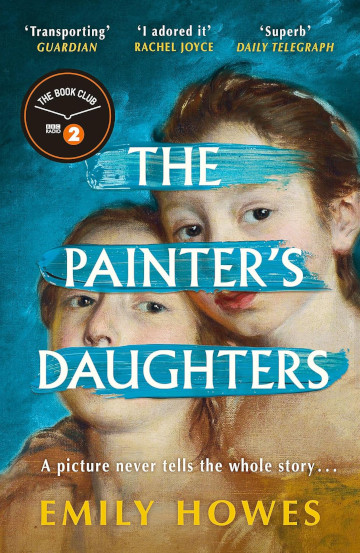
In The Painter’s Daughters by Emily Howes, Thomas Gainsborough moves his family to Bath — where his daughter Peggy finds it harder to hide her sister Molly’s secret: she forgets who she is and falls into confusion. Then Peggy falls in love. Her discovery of a betrayal forces her to question all she has done for Molly — and whether any one person can truly change the fate of another. Emily’s novel was shortlisted for the 2024 Debut Crown Award, among many other acclamations.
It’s Paris in 1866 in Spitting Gold by Carmella Lowkis. Baroness Sylvie Devereux, a former medium, and her estranged sister, Charlotte Mothe, embark on a final con — the aristocratic de Jacquinots, who believe their great-aunt haunts them. Sylvie and Charlotte use every trick to terrify the family out of their gold – until they, too, experience inexplicable horrors. What deep, dark secrets threaten to come to light?
Nicola Cornick‘s The Secrets of the Rose is out on February 7. In 1715, war threatens Dorothy Forster of Bamburgh Hall. She discovers her family are the keepers of the Rose, a talisman both sides believe will give them victory. In the present, Hannah Armstrong returns home to Bamburgh Hall, but learns that Dorothy’s mysterious legacy is one people will kill for. Can she unravel the secrets of the past in time?

A Mother’s Promise: My true story of surviving Auschwitz and the horrors of the Holocaust by Kate Thompson and Renee Salt is also out on 7 February. Renee shares the story of how from Auschwitz-Birkenau to Bergen-Belsen, her mother was always with her. The strength of Sala’s love gave them both something fragile yet beautiful to cling to, and her small actions had life-saving consequences. Kate is writing about this book for Historia.
The paperback of Susan Stokes-Chapman‘s The Shadow Key hits the shelves on 13 February. Physician Henry Talbot is out of place in Meirionydd in 1783; he can’t speak Welsh and the locals distrust him. Linette Tresilian of Plas Helyg feels something is not right in the village. When Henry investigates his predecessor’s disappearance, the truth about her family is revealed, binding their destinies together. Susan is writing a feature linked to her book for Historia.
Jad Adams‘s Tony Benn is reissued on 12 February to mark the centenary of the radical politician’s birth. Written with unparalleled access to his private records, and chronicling the behind-the-scenes story of this remarkable man’s rise and fall and his triumphant return as the conscience of the nation, this acclaimed biography explores Benn’s continuing legacy in 21st-century Britain.

On 15 February Murder in Anglo-Saxon England: Justice, Wergild, Revenge by Annie Whitehead looks at the many stories of murder — including witchcraft, poisoning, and betrayal — which give the impression of a time of lawlessness and rebellion. But how many of these tales are true, and how do they square with a period known to have had lengthy, detailed law codes and harsh punishment for unlawful killing? Annie has written us a feature on this grisly subject.
Also on the 15th, Grub Street: The Origins of the British Press by Ruth Herman takes us back to the early days of the British press. We learn how journalists honed their craft, including some of English literature’s most famous names, and the remarkable variety of content, including the earliest examples of writing aimed at women and the often bizarre or downright astonishing advertising that shared the same pages. Ruth writes about two of the more scandalous early printers for Historia.
Madder Music, Stronger Wine: The Life of Ernest Dowson by Jad Adams is reissued on 17 February. ‘They are not long, the days of wine and roses’ is one of Dowson’s most-quoted lines, and it was prophetic in his case. He was the ultimate decadent Victorian poet, composing verses which can be considered the finest expression of the fin de siècle, but died penniless at the age of 32.

Estranged sisters Izzie and Sylvia Shelton inherit their mother’s dressmaking shop in The Dressmakers of London by Julia Kelly, out on 18 February. When Izzie’s conscripted into the WAAF, she needs Sylvia’s help to keep the shop open. Sylvia is determined to save it from closure — and financial ruin. The sisters must confront old wounds, new loves, and the weight of family legacy, in order to forge new beginnings.
On the same day, Poppy Denby is back in Fiona Veitch Smith‘s Murder of an Oxford Scientist. Reporter-sleuth Poppy investigates the mysterious death of scientist June Leighton. June’s lab assistant believes it was murder. But the assistant has been in a mental institution and was involved in an unsolved murder. Poppy wonders if she is being misled. Then another scientist is killed and Poppy herself becomes a target.
In Griff Hosker‘s Legionary, on 21 February, a young man has to leave his home when poverty strikes and joins the army of Pompey. He learns to fight in a civil war — and luckily chooses the winning side.
The Soldier’s Stand by Eleanor Swift-Hook, the second in her Lord’s Learning series, is published on 25 February. It’s Summer, 1626, and, amid the turmoil of the Thirty Years’ War, Filippo Schiavono and his loyal servant, Jorrit Musykens, track a murderer through enemy territory and the chaos of battle. In the Hague, Lady Catherine de Bouqulement is sent on a secret mission for the Electress Palatine.
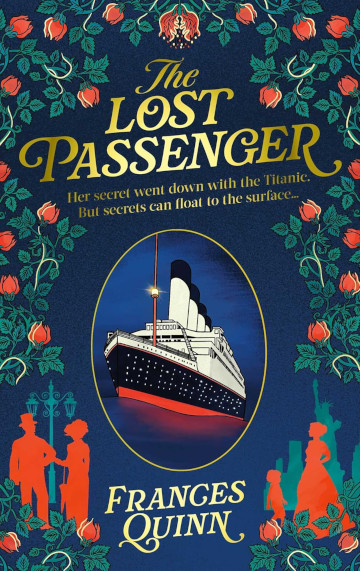
Five books are out on 27 February. In The Lost Passenger by Frances Quinn Elinor Coombes sees a trip on the Titanic as an escape from her husband and some time with her little son, Teddy. When the ship sinks, she takes the chance to make a new life with Teddy, listed as among the dead. Penniless, using another woman’s name, she must learn to survive in an utterly different world — and keep their secret safe.
In The Queen and the Countess by Anne O’Brien it’s the 1450s and with her husband, Henry VI, increasingly frail, Queen Margaret must protect the crown — and her son Edward’s claim to it — at all costs. Anne, Countess of Warwick, and her husband’s enemy, Margaret, make an unlikely alliance. But in the midst of treachery and the turmoil of battle, can the two women trust each other?
Still on the 27th comes the paperback of Eliza Mace by Jem Poster and Sarah Burton. In the 1870s young Eliza Mace finds her Welsh borders home town stifling. When her father goes missing, Eliza’s determined to uncover the truth, alongside constable Dafydd Pritchard. But her father’s run up debts and many bear him a grudge. And Eliza’s search for evidence exposes dark secrets that threaten to tear her world apart. Jem’s writing us a feature to coincide with publication.
In Arthur by Giles Kristian, out in paperback, the Saxons are now lords of Britain. Old Beran, now a mercenary, is ordered to murder a boy, King Ambrosius’s grandson and Britain’s only hope — if he lives. Instead, Beran vows to deliver the boy to Camelot, still holding out against the Saxons. He and his band face many enemies in their journey. But returning to Camelot means Beran must also face his own past. Read Giles’s feature on retelling the Arthurian legends.

Finally on 27 February comes the paperback of The Household by Stacey Halls. In 1847 Urania Cottage offers refuge for prostitutes, petty thieves and destitute women. But do they want it? In Piccadilly, millionairess Angela Burdett-Coutts, a benefactor of Urania Cottage, discovers that her stalker has been released from prison. As the women’s worlds collide, they discover that freedom always comes at a price.
The Lord Protector and his wives: Catherine Filliol, Anne Stanhope and Edward Seymour by Rebecca Batley is out on February 28. Jane Seymour’s brother Edward married the wealthy Catherine Filliol before 1518 — but he put her aside and, by 1535, married the heiress Anne Stanhope, strong, opinionated and intelligent. Anne’s brother-in-law, half-brother, and husband went to the block, but she survived — just.
On the same day, in The Wire and the Lines by Patrick Larsimont, fighter pilot Jox McNabb is caught and imprisoned in Italy in 1943. Inside the brutal camp morale is low, but a Luftwaffe colonel embroils Jox in a scheme to use POWs as human shields to smuggle looted Italian artworks. Could this give Jox the means to escape? And can he get back in action with No 333 Squadron and rejoin the war in the skies?
March

Madame Matisse by Sophie Haydock is out on 6 March. Amelie has given everything for her husband, Henri Matisse, and his art. When Lydia Delectorskaya, a young Russian emigree, finds employment with the Matisse family, their lives are set on a collision course. Marguerite is Matisse’s eldest daughter. When her family implodes, she must find her own way to make her mark and to navigate divided loyalties. Sophie’s feature for us looks into the lives of the three woman.
On 13 March Murder at the Palace by NR Daws sees the palace housekeeper, Mrs Bramble, discover a murder at Hampton Court. With the police determined to bark up the wrong tree, Mrs Bramble decides to take up her own investigation with the help of the murdered woman’s maid. After all, as servants, they know just how many dangerous secrets and secret squabbles the genteel residents of the palace apartments harbour. Read Neil’s Historia feature about the palace’s ‘grace and favour’ apartments and their mixed bag of inhabitants.
On Starlit Seas by Sara Sheridan is out on the same day. Maria Graham is sailing home to London, where she hopes to live free from the constraints of Georgian society. It belongs to roguish smuggler Captain James Henderson. Then Maria makes two shocking discoveries — the first, a deadly secret, the second, her attraction to the captain. But can he escape his illicit past, or will the secret he’s hiding ruin them both?

Two books by Stephen May are published on the 13th. In Green Ink, no-one knows what happened to Victor Grayson in September 1920, when he vanished having threatened to reveal all he knew about Lloyd George’s involvement in selling honours. Was he murdered by the government? By enemies in the socialist movement? Did he fall in the Thames drunk? Did he vanish to save his own life? Stephen’s written us a piece about the background to his novel.
And in Sell Us the Rope, out in paperback, it’s May 1907. Young Stalin – poet, bank-robber, spy – is in London for the 5th Congress of the Russian Communist Party. Building his power base, he manipulates alliances with Lenin, Trotsky and Rosa Luxemburg as the Czar’s secret police watches. But he’s drawn to the Finnish activist Elli Vuokko – and risks all in a relationship as complicated as it is dangerous.
Also out in paperback on 13 March, Midnight in Vienna by Jane Thynne, set in 1938, sees Stella Fry take a job with an author, Hubert Newman. But next day she learns he’s died, unexpectedly. Harry Fox has been suspended from Special Branch. He tells Stella he believes that the writer’s death was no accident. What’s more, since she was the last person to see Newman, she could be in danger herself.
On 14 March A Pact with the Devil by Anna Legat gets its ebook release. In 1491 Nicolaus Copernicus starts his studies at the University of Cracow. When the alchemist Dr Faustus is found hanging, with a pentagon carved on his chest, panic grips the city. An exorcist is summoned. But the rationalist Nicolaus investigates — and uncovers a man-made conspiracy that could shake the foundations of Poland. Anna’s written a Historia feature about the ‘real’ Dr Faustus.
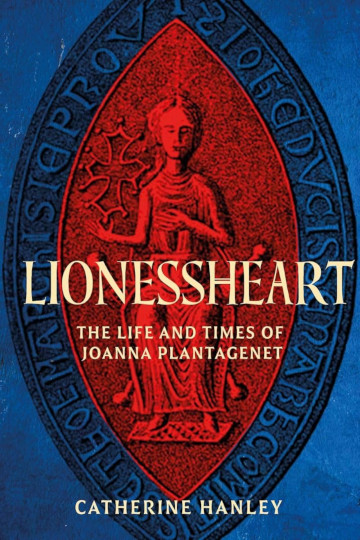
Five books are out on 20 March. Helen’s Judgment by Susan C Wilson is the second in her House of Atreus series. Helen of Troy is the most scapegoated heroine in Greek mythology, but there’s never just one side to any story. We discover her complexities, tormented by the blame placed on her by others, and tortured by her own guilt. With all sides hostile, Helen must decide where her loyalty — and her safety — lies. Susan writes about heroic shame, the obsession with reputation that drove Ancient Greek characters.
Lionessheart: The Life and Times of Joanna Plantagenet by Catherine Hanley. Henry II and Eleanor of Aquitaine are two of the most recognisable figures of the Middle Ages. But their daughters are barely known despite the influence they had on the world around them. Joanna, the youngest daughter, led an extraordinary life of travel, adventure, danger and controversy. This is her story, in full for the first time. Catherine’s Historia feature explains why this remarkable woman was really a lionessheart.
Also on 20 March, No Country For a Woman: The Adventurous Life of Lady Dorothy Mills, Explorer and Writer by Jane Dismore is the story of ‘Dolly’ Mills, a courageous and convention-defying pioneer who, by the 1930s, was best-known female explorer of the day. A feminist with unorthodox views which cost her her marriage, she also wrote bold novels and incisive features for women. Jane is writing us a feature about this remarkable woman.
The ebook of Fiona Forsyth‘s Death and the Poet, the second Publius Ovidius Mystery, sees Ovid, exiled in Tomis, investigating a vegetable seller’s murder in AD14, helped by his friend Avitius and his wife, Fabia. The another murder is committed. With Emperor Augustus nearing death, Ovid hopes for a return to Rome — only to discover that he is under threat from an enemy much closer to home. Fiona’s written a feature about Augustus’ death, which will be in Historia soon.
Finally on 20 March Clare Mulley‘s Agent Zo is out in paperback. Elzbieta Zawacka, the WWII female resistance fighter called Agent Zo, was the only woman to reach London from Warsaw as an emissary of the Polish Home Army command and, later, to join the Polish elite Special Forces. In Nazi-occupied Poland, hunted by the Gestapo, she took a leading role in the Warsaw Uprising and Poland’s liberation. Clare talks about this remarkable woman to Carolyn Kirby for a Historia interview.
Tracy Borman‘s Holbein: The Ambassadors, published on 25 March, is one of a quartet of books telling the stories of the National Gallery’s four most famous paintings. It unpicks the secrets of this enigmatic artwork, painted during a turbulent time in English history, ranging from Holbein’s experiences as an émigré who rose to be Henry VIII’s ‘King’s Painter’, to the two French ambassadors’ troubles at court.
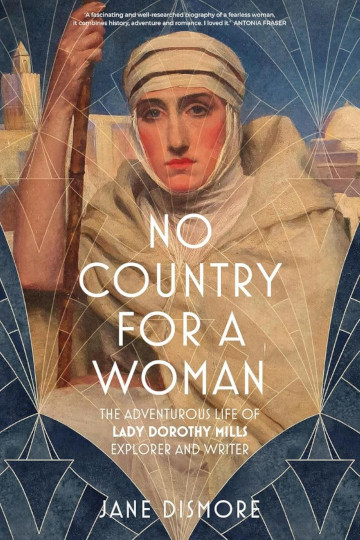
Six books are out on 27 March. In Women of War by Louise Morrish it’s 1914. Edie Lawrence disguises herself as a soldier, hoping to become the first woman to report from the battlefield. Dr Lucinda Garland helps create a pioneering female-run military hospital in Paris — where she loses her heart unexpectedly. When Edie is injured and her secret revealed to Lucinda, their fates intertwine in unforeseen ways. Louise has written about the two courageous women who inspired her novel and went to war.
Jane Austen sleuths again in A Fortune Most Fatal (Miss Austen Investigates) by Jessica Bull. Jane is visiting her brother Neddy at his benefactor’s house. The Austen family’s finances depend on Mrs Knight’s generosity. Jane finds a strange woman there, a swindler after Neddy’s inheritance. Can she expose the impostor? And, when her investigation takes a dark and dangerous turn, can she save herself?
The 27th also has The Paris Muse by Louisa Treger in paperback. Paris, 1936. Dora Maar is Picasso’s lover — and a talented photographer, painter and poet. Their turbulent, sometimes sado-masochistic, affair and his infidelities torment her, while he agonises over the Spanish Civil War. As darkness suffocates their relationship and the Second World War breaks out, Dora has a nervous breakdown and is hospitalised. Read Louisa’s feature Dora Maar: much more than a muse.
On the same day, A Merciful Sea by Katie Daysh sees Arthur Courtney offered a place on HMS Lion by Henry Harrison. But the offer includes marriage to Harrison’s sister-in-law. Must he choose between his career and his love for Hiram Nightingale? And on the Isle of Wight, Nightingale receives threatening notes — but there’s even more trouble on the island and he, too, must act to protect England’s shores. Katie’s written a feature about researching naval fiction.
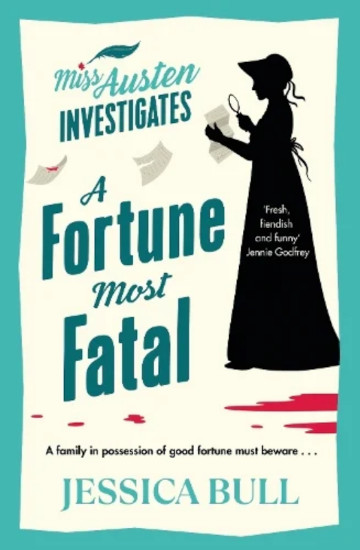
Banquet of Beggars by Chris Lloyd is out in paperback. In Paris in 1940, Detective Eddie Giral is no longer just catching criminals; he’s working for them. When a German trader dies, the authorities decide innocent civilians will pay the price — unless Eddie can find the killer in time. As hunger grows, tensions rise, and a fierce rebellion brews, Eddie must do whatever it takes to live with the enemy… and with himself. Read Chris’s Historia feature about the choices he made when writing his novel.
Finally on 27 March, and also in paperback, comes The Heir of Venus by Laura Shepperson. Aeneas, the son of Venus, is destined for greatness. The women behind him, Creusa, Dido, and Lavinia, find his path impacts with their own, unprophecied lives. But if their destiny remains unwritten, can they determine the future for themselves? Could their choices change history?
Griff Hosker returns on 28 March with An Officer and a Gentleman, the fifth in his Soldier of the Queen series. Griff Roberts is sent back to Egypt to serve in a fort in the middle of the desert. Forced to take command, he encounters a sinister threat from a new enemy. When disaster strikes his army career seems over — until an old friend of his father’s gives him a job that uses his skills… but in a new way.
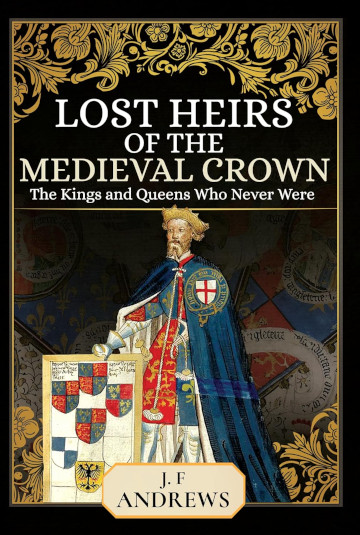
30 March sees Lost Heirs of the Medieval Crown: The Kings and Queens Who Never Were by JF Andrews in paperback. The Anglo-Norman and Plantagenet dynasties were renowned for their internecine strife, and this book unearths the hidden stories of fratricidal brothers, usurping cousins and murderous uncles; the many kings – and the occasional queen – who should have been but never were.
The Keeper of Lost Art by Lelita Baldock is published in March. Italy in 1943 is divided, occupied by Germany in the north and the Allied forces in the south. In Bari, Alessia struggles to bring up her younger brother, Niccolo, under the shadow of war. When an unexpected visitor from Rome knocks on the door, Alessia’s loyalties will be put to the test and old secrets will be revealed.
April
Good Trouble: The Selma, Alabama and Derry, Northern Ireland Connection 1963-1972 by Forest Issac Jones is out on 1 April. It shows the strong connection between the Black Civil Rights movement in the US and the Catholic Civil Rights movement in Northern Ireland – specifically the influence of the Montgomery to Selma march on the 1969 Belfast to Derry march — as told through oral history.

On 3 April The Eights by Joanna Miller is out. Oxford, 1920, and women can at last go to the University. Dora’s there in place of her dead brother and fiancé. Beatrice sees Oxford as a chance to make her own way. Socialite Otto needs distraction from memories of the war years. Quiet, clever, Marianne has a secret to guard. As the group navigate a tumultuous time, their friendship becomes more important than ever.
Donovan Cook‘s The Bear Slayer, his fourth Ormstunga Saga, is out on the same day. Ulf Bear-Slayer Bjornson nearly loses his life after a drunken fight with Ragnar Lothbrok and flees. Learning of a raid led by Ragnar to Francia, he returns, hoping to join and make amends for the past. But Ragnar has not forgotten about their conflict and, while Ulf fights for his life, others seek to use his anger against him.
Sonia Velton‘s The Nightingale’s Castle gets paperback publication on 3 April. Boróka is a servant at Cachtice Castle near the Carpathians. There are rumours that Countess Erzsébet Báthory murders young girls. Still, a tentative bond forms between the two women. But Erzsébet’s wealth poses a threat to the King. When a show trial begins against the infamous ‘Blood Countess’ where will Boróka’s loyalties lie? Sonia has written about the real Countess Báthory for Historia.
Charles II’s Portuguese Queen by Susan Abernethy is published on 9 April. This biography contains comprehensive information on Catherine of Braganza’s life in Portugal and integrates new scholarship regarding Catherine’s practice of queenship and patronage of Catholic Baroque culture in an effort to carve out a prominent role at the Stuart court and to compete with her rivals, Charles’s mistresses.

On 10 April, A Call to Home is Holly Green‘s third Women of the Resistance novel. Alix has fought beside her comrades in the Partisans for two years. But her personal relationships, with Nikola – who she was supposed to marry – and Drago, her friend, are complicated. With the rival Chetniks is Steve, the pilot never far from Alix’s mind. A reunion seems unlikely, but nothing is ever predictable in love and war…
The same day sees the paperback edition of Bonjour, Sophie by Elizabeth Buchan. In 1959 it’s time for 18-year-old Sophie’s life to start. She dreams of escape to Paris, the wartime home her mother fled before her birth, hoping to discover more about her family and, perhaps, to find a place where she can finally belong. But the real Paris is both everything she imagined, and not at all what she expected… Read Elizabeth’s feature on remote research in The surprising joys of armchair travel.
Carnival of Chaos, the fourth in Richard Kurti‘s Basilica Diaries, is published on 11 April. When the bodies of migrant workers are found on an abandoned ship — cheap labour for building St Peter’s — the Vatican is desperate to distance itself, find the guilty contractor and stamp out this illegal trade. The Pope charges Domenico with investigating, and he turns to Cristina for help.

On 15 April a new MJ Porter series, The Dark Age Chronicles, begins with Men of Iron. It’s Britain in AD540 and seeress Meddi must harness the power of iron against her enemies. Meanwhile young Saxon warrior Waermund flees justice with his band of miscreants, heading westward for plunder. The two collide in a storm of iron.
Fiona Veitch Smith‘s fourth Miss Clara Vale mystery, out on 15 April, is The Penford Manor Murders. Clara is at Penford Manor investigating a blackmail plot against Lady Penford. When the body of a local trade unionist is found in the grounds, a clue left by the body links it to the blackmail note. Who has discovered Lady Penford’s secret? Can Clara and her assistant Bella find the murderer before they kill again? Fiona’s written for us about using period costume in research.
Lilith by Nikki Marmery gets paperback publication on the same day. Lilith and Adam are equal and happy in the Garden of Eden. But Adam has her banished for not submitting to him and is given Eve instead. Lilith has eaten of the Tree of Knowledge, though, and plans to recue Eve, find God’s missing wife Asherah, restore balance to the world and take her place in Paradise. Read Nikki’s exploration of the ancient stories that made her ask: where is the mother in the creation myth?
On 16 April Vichy’s Last Castle: Pétain’s Puppet Regime in Exile at Sigmaringen by Paul StJohn Mackintosh is the first single English-language history of Pétain’s enclave. Sigmaringen Castle housed French Vichy officials and fascists on German soil, refugees and hostages maintained at the Nazis’ pleasure. It saw the last residue of French collaborationism in the closing months of WWII.
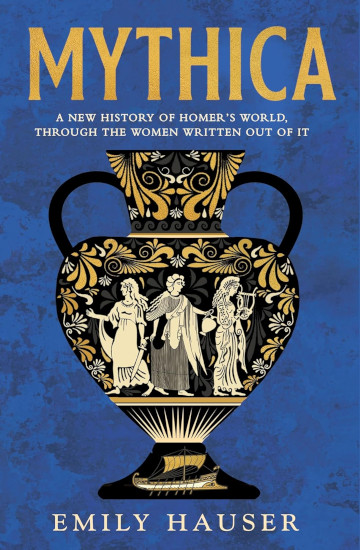
Mythica: A New History of Homer’s World, through the Women Written Out Of It by Emily Hauser is out on 17 April, the stories of the real women behind some of the greatest legends. Using the history behind the poems, evidence from the original texts, recent archaeological finds and DNA studies, she reveals who these women – queens, mothers, warriors, slaves – were, how they lived, and how history remembers them. Emily’s written about the real women behind the myths for Historia.
Lorraine Quick is back in Isolation Ward by Martine Bailey on the same day. She’s building a team for a new high security unit to replace an asylum. But it seems that the group includes a secret saboteur. Then a local teenager is found dead in the derelict asylum’s isolation room. Trapped in the asylum’s tunnels while the demolition team start work above, truly isolated, Lorraine becomes a fresh target for the killer.
Also on the 17th, The Savage Isle by Michael Arnold is set in Britannia in AD42. Cunobelin, High King of the Britons, is dead and the land is riven by conflict. Orphan boy Cullen must fight for survival within the Catuvellauni, his captors, if he is to avoid the murderous attentions of the chief druid. And as the Britons turn inward, jostling for dominion, avaricious eyes watch across the sea as the mighty legions gather.
The Jacobites and the Grand Tour: Educational Travel and Small States’ Diplomacy by Jérémy Filet , published on 22 April, explains how and why certain small states secretly supported the Jacobite cause during the crucial years surrounding the 1715 Rising. It brings together a study of Britain, small states, Jacobitism, and educational travel, with a focus on continental academies as centres of soft power. Jérémy’s feature on the subject will be in Historia soon.

The same day sees Rosemary Hayes‘s second Soldier Spy novel, The King’s Agent, released. Disgraced soldier Will Fraser and Duncan Armstrong, his Sergeant, are sent to France in 1809 to rescue some betrayed undercover spies. They must also contact a French spy with secrets for the British. But the head of Napoleon’s secret police is on their trail. And Fraser has a very personal score to settle.
Lord Byron is Dangerous in Essie Fox‘s novel, out on 24 April. Byron’s in Venice, and living it up — but when women are found dead, with wounds to their throats, and a novel called The Vampyre is published under his name, rumours begin to spread. To save his life and those of the people he loves, Byron must discover who is behind these crimes, while the scandals of his own infamous past return to haunt him… Look out for Essie’s Historia feature about the true story behind her Gothic chiller.
Still on the 24th, in The Midnight Carousel by Fiza Saeed McLynn, it’s Paris, 1900. Celebrated carousel-maker Gilbert is finishing his masterpiece. But, grieving his dead family, he has a dangerous idea. Maisie Marlowe renovates a neglected old carousel in Chicago in 1920. But it’s hiding a dark secret. It was linked to a number of people inexplicably vanishing into thin air — and now history has begun to repeat itself. Fiza’s writing us a feature about why it’s never too late for your first novel.
On the same day, Blitz Kids: True Stories from the Children of Wartime Britain by Duncan Barrett and Nuala Calvi tells the remarkable true stories of children who spent their nights in cramped air-raid shelters with the rumble of planes and the crash of bombs overhead. Many woke to find their homes and schools destroyed, their families shattered. Yet amid the turmoil, they found a way to enjoy their childhoods. Duncan’s written about the experiences of some of the former Blitz Kids he and Nuala spoke to.
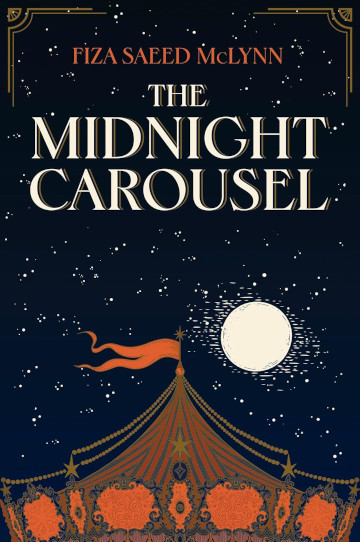
It’s 1597 in London in The Darkening Globe by Naomi Kelsey, also on the 24th. Beatrice’s husband returns from the New World with a strange woman — and a globe. When terrifying drawings appear on its face and untimely deaths ensue, Beatrice is sure they’re linked. What sinister force is behind the killings? What really happened in the Americas? And on this map of murders, who will appear as the final victim?
In Fields of Glory by Michael Jecks on 25 April, it’s 1346 and, in France, King Edward III has a plan to bring the French army to its knees. Berenger Fripper, Vintener of Sir John de Sully’s Vintaine, leads his men through France and onward to battle — the Battle of Crécy – one which will both bond and break his men and be a decisive turning point in the Hundred Years’ War.
A new book by Tom Williams, Burke and the War of 1812, hits the shelves on 26 April. With the young US threatening to invade Canada, Britain is arming native Americans and desperate for intelligence on Washington’s plans. Sounds like a job for James Burke! Politics and battlefields provide a gripping background as Burke and William Brown fight, cheat and lie for Britain in a new theatre of war. Tom’s written a Historia piece about this (all too timely?) topic.
Au Temps de la Confusion, the French version of In the Time of Confusion by Desmond Astley-Cooper, is expected this month.
The Last School Bell by Tony Aston will be published in Spring or Summer.
May
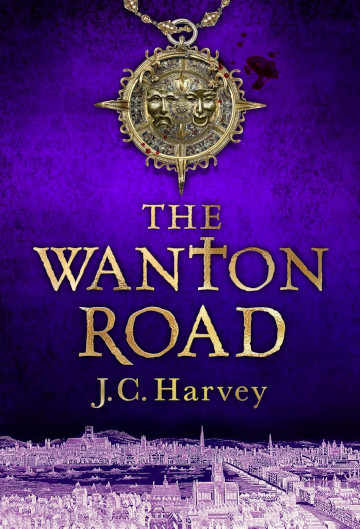
Three books are out on 1 May. The Wanton Road by JC Harvey finds Jack Fiskardo in London in 1639. A veteran of war and tragedy, he longs to make a life for himself and his two sons different to any he has known. But in an England on the verge of civil war, a soldier’s past can’t be easily forgotten. With the reappearance of his first and deadliest foe, saving those he loves will mean risking everything he has.
In The Devil’s Draper by Donna Moore, when whispers of abuse at a department store in Glasgow reach Mabel, a determined policewoman, she knows she must act. With Johnnie, a cunning thief, and Beatrice, a savvy businesswoman, she embarks on a perilous journey to uncover the truth. But as they get closer to exposing the truth, they learn that, in a world where women are rarely believed, their lives are at stake.
Still on 1 May, Sean Lusk‘s A Woman of Opinion is out in paperback. Celebrated writer Lady Mary Wortley Montagu has never let society’s limits stifle her. But she wants more. When her husband becomes ambassador to the Ottoman Empire, Mary finds the autonomous life she dreams of. And when she sees Turkish women ‘engrafting’ children against smallpox, she resolves to bring the miracle cure back to England. Find out more from Sean about this remarkable woman.
In The Tiger and the Thief, the second East Indiaman Saga from Griff Hosker on 2 May, Bill Smith is hidden in a company of East India soldiers — but his skills as a thief are called on to gather the information needed to bring down Tipu Sultan, the Tiger of Mysore. Will he succeed in his mission? And what will it mean for his ultimate plans for freedom? Will Bill be able to part from his new-found family?

There are two books out on 8 May. In Last Train to Freedom by Deborah Swift, Polish refugee Zofia agrees to carry a parcel from Moscow to Tokyo — a 6,000 mile journey on the Trans-Siberian Express. But the parcel is a political hot potato, containing damning evidence of Nazi atrocities, and the Germans will stop at nothing to get it back. Can she survive the journey and succeed in her mission to deliver the truth?
The Stranger’s Companion by Mary Horlock, now in paperback, is set on Sark in 1933. When Phyllis Carey returns from England she throws herself into solving a mysterious murder on the island. Searching gossip, ghost stories and dark rumours for the truth, she meets Everard Hyde, a surprise visitor from her past. As press coverage of the murder builds, secrets from their shared, shadowy history begin to surface. Mary’s written about the true story that inspired her book.
In the shops on 15 May, A Pale Horse is CB Hanley‘s ninth Mediaeval Mystery. Midsummer, 1221, and Edwin Weaver and his friend Sir Martin travel to Sherwood Forest, where they find a dying man who can only gasp out a few cryptic phrases. Martin must reconcile himself with his past while Edwin has to work quickly to solve the crime if more death is not to be visited upon the innocent.
Also on the 15th, in Blood Sacrifice, the second book in Douglas Jackson‘s Warsaw Quartet, it’s January 1943. In the Warsaw ghetto, the last 50,000 Jews are preparing to fight to the end. The murder of a German officer draws double agent Jan Kalisz into the ghetto, where a figure known as the Golem is spiriting away orphaned children. Can Kalisz track him down before he strikes again? Douglas has written a powerful piece about researching traumatic events for us.

On 22 May The Soho Murder by Mike Hollow is out in paperback. In the ninth Blitz Detective novel it’s December, 1940, and DI John Jago investigates the death of a bookseller who’d just bought a mysterious, priceless — and missing — volume. Obsessive collectors and unscrupulous dealers haunt Jago’s descent into Soho’s underworld. Did one of them want the book enough to kill for it?
Stormcrow by Ben Kane gets its paperback release on the same day. Young Finn, called Stormcrow, raids the Irish coast in a Norse longship, seeking not just riches but vengeance for his murdered father. It’s a perilous life. When he meets the new wife of Sigtrygg Silkbeard, King of Norse Dyflin, his life changes — and he is once more in deadly danger… of a different kind.
On 26 May Shiaba No More by Willie Orr, the third in his Shiaba trilogy, is released. It tells the story of the Great Famine in the Hebrides, involving evictions and starvation. Willie’s written us a piece on the historical background to his books.
It’s October, 1912, in TE Kinsey‘s The Beast of Littleton Woods, his 12th Lady Hardcastle Mystery, out on 27 May. The village is shocked when a sheep is mauled to death. Lady Hardcastle and her maid, Florence Armstrong, don’t believe rumours of a marauding beast and search for an explanation; then two men are killed in the same way. Is a beast really on the loose? Or is the killer more sinister — and human?

Mark Ellis‘s Frank Merlin is back on 29 May in Death of an Officer. It’s Summer, 1942, and In a bombed-out London swarming with gangsters and spies, DCI Frank Merlin continues his battle against rampant wartime crime. A mangled body is found in the Thames — just as some items of priceless art go mysteriously missing. What sinister connection links the two? Mark’s written us a feature about the wartime crime boom.
Four books are out on 30 May. A new biography by Mark Turnbull, Prince Rupert of the Rhine: King Charles I’s Cavalier Commander, Mark uses fresh research to look beyond the popular image of the dashing Cavalier hero (or Parliamentarian villain) and tell a deeper and more nuanced story, including insights on the women in Rupert’s life. We’ve got a feature by this Mark, too, on Rupert and his loves: Frances Bard and his life partner, Margaret (Peg) Hughes.
Also on 30 May, Tiberius: From Masterly Commander to Masterful Emperor of Rome by Lindsay Powell is out. This reassessment of his life and legacy shows Augustus’ heir using his leadership skills in military and diplomatic affairs to avoid war whenever possible. A disciplinarian willing to forego popularity, he respected the Senate’s independence and left Rome stronger and at peace. Lindsay’s writing us a piece about the controversial death of Augustus, to be published on 25 June.
The same day sees Blood on the Sand by Michael Jecks released. In 1346, Berenger Fripper and his men are besieging Calais. But someone in the vintaine is leaking important information to the French. When the vintaine is attacked and captured at sea, can Berenger defeat their enemies and secure England’s victories?
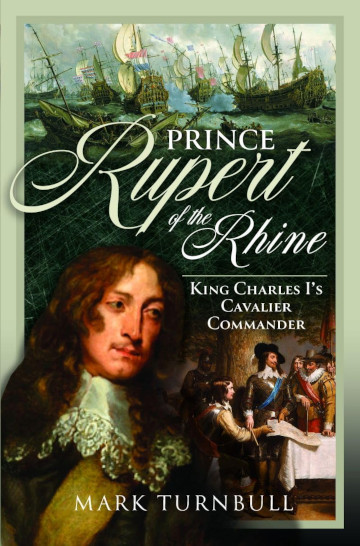
Finally there’s What We Left Behind by Luisa A Jones. When the threat of bombs in London sends five evacuee children and their handsome teacher to her small Welsh town, young librarian Dodie Fitznorton is unprepared for just how much her quiet life is about to change. The children are troubled. Then rumours start about spies in the village. Who can Dodie trust?
Barvick Falls by Rob McInroy, the fourth in his Bob Kelty series, is expected this month. War is declared and Bob and Annie Kelty’s life is shaken up by a Glaswegian evacuee. Odd events in Crieff are blamed on the evacuees, but the truth is nearer home. Everybody knows something about teacher Lorna Carrington, but nobody knows it all. Will they share their information in time to stop her committing an atrocity?
Jad Adams‘s Choice of Darkness will also be out in May. Set in the 1890s, it’s based on the hunt for Henry Holmes, the first serial killer in US history. It is told from the point of view of the detective who tracked him down, a man burdened by a love betrayed.
June
Seven books are out on 5 June. It’s May, 1945, in A Schooling in Murder by Andrew Taylor, and teacher Annabel Warnock is dead. But her ghost haunts Monkshill Park School for Girls, where she discovers a hidden world – students, staff and servants are riven with deadly rivalries and dangerous tensions. And one of them is her killer…
And in the sixth of TA Belshaw‘s Amy Rowlings Mystery series, Encore For Murder, amateur sleuth Amy finds herself asking: how can a man be murdered twice? When gang member Lonnie Firth turns up dead, again, Amy joins forces with Inspector Bodkin to untangle a web of deception, rival gangs, and dangerous alliances. In which everyone has something to hide.

In Jane Johnson‘s Secrets of the Bees on 5 June, when a London financier sees the chance to rent out Ezra Curnow’s Cornish home at Trengrose to tourists, Ezra must use all his wiles to keep his cottage. It seems an increasingly hopeless cause. But the recently-dead mistress of Trengrose took some secrets to her grave, and she doesn’t intend to rest quietly until they come to light…
Power Couples of the Tudor Era by Jo Romero. From the marriage of Henry VIII and Katherine of Aragon to the machinations of Elizabeth I and Robert Dudley, these couples navigated court intrigue, international diplomacy, and personal ambition. Some stood against reform, while others united to end wars and forge new dynasties. They changed not only their own lives but the future of the realm.
Still on June 5, Costanza by Rachel Blackmore has its paperback release. When Costanza Piccolomini’s secret lover, the sculptor Gianlorenzo Bernini, unveils his sculpture of her in 1636, he also exposes her. The scandal will rock Roman society. And, even though their affair must end, Bernini would rather destroy Costanza than let her go. But now she has found her voice…
A Thief’s Blood (A Company of Rogues book four) by Douglas Skelton is out in paperback. A family is found butchered in the London slums and Jonas Flynt is sent to investigate. When another family is murdered, Flynt uncovers a simmering conflict between rival gangs. But is this more than gang warfare? Is there someone else, dangerous and deranged, stalking London with blood on their hands?

Finally on 5 June Queen Catherine’s Court: Power and Rebellion in Restoration England is the paperback edition of The Lost Queen by Sophie Shorland. Charles II’s wife championed Baroque fashion and art. A Catholic queen in a strictly Anglican country, she was the diplomatic bridge between Britain and the European mainland, and carefully navigated the treacherous political landscape of Restoration England.
6 June sees Conscript’s Call by Griff Hosker published. When John Sharratt is conscripted to the army he joins thousands of others in the same situation; the difference is that he becomes an orphan within hours of his conscription and he faces the trials and tribulations alone. But when he is sent to fight in Greece against the Italians and Germans, he discovers not only who his friends are, but what is inside him.
On June 9 The Star of Ceylon by Clare Flynn is out. Stella Polegate longs for academic recognition, but in colonial Ceylon in 1906 that’s impossible. When her world is shattered by a violent attack, only Norton Baxter, a principled young civil servant, seems to be on her side. Can she find freedom — and learn to trust, and to love?
The same day sees The Barbed-Wire University: The Real Lives of Allied Prisoners of War in the Second World War by Midge Gillies reissued in paperback. First published in 2011, these are the stories of Allied prisoners of war who looked to a life beyond the camps, including by teaching and learning new subjects. Their time in captivity became one of amazing achievements, and changed their lives for ever.
The Rush by Beth Lewis is published on 10 June. Canada, 1898, and amid the Gold Rush journalist Kate is fleeing a husband who means to kill her. Martha’s hotel and livelihood are under threat. And Ellen’s husband fails to find the gold they risked so much for. When a woman is found murdered, they must navigate a desperate land run by dangerous, greed-driven men to unmask her killer.

The Trouble with Mrs Montgomery Hurst by Katie Lumsden is released in paperback on the 12th. Mr Montgomery Hurst of Radcliffe Park is getting married — to a poor widow with three children. Society is appalled and intrigued, including Mr Ashpoint, who had hoped his daughter, Amelia, would be the bride. But she has no interest in marrying at all. It seems Mr Hurst’s business is everyone’s but his own…
Annie Garthwaite‘s The King’s Mother, the follow-up to Cecily, comes out in paperback on the 12th. It’s 1461, and Cecily’s son Edward IV has gained England’s throne. But can he keep it? As brother betrays brother, and trusted cousins turn treacherous, other mothers rise up to fight for other sons. Cecily must focus her will to defeat every challenge, for there can be only one King, and only one King’s Mother. Annie writes about the four mothers-in-war for Historia.
Hazel Gaynor‘s Before Dorothy is out on 19 June. Kansas, 1932. When Emily Gale’s beloved sister dies, she must become a mother to her orphaned child, Dorothy. But on the barren Kansas prairies, no place for a child, Emily’s courage is endlessly tested. Drought and relentless dust storms threaten to destroy all she has — including her home and marriage. Can Emily overcome her grief and let Dorothy heal her heart?
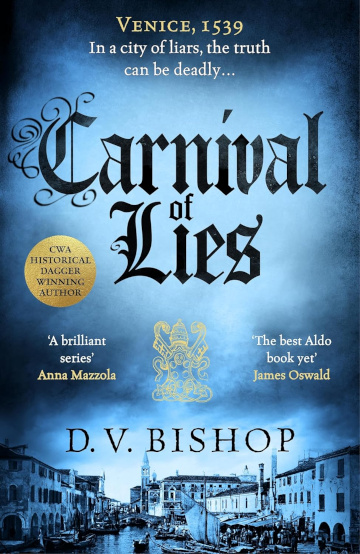
In The Tarot Reader of Versailles by Anya Bergman, on the same day, terror rules Revolutionary Paris. Marie Anne can talk to the dead through her Tarot cards. She sees Marie Antoinette’s fate and must avoid it being her own. She forms a bond with Cait, an Irish maid who can read people’s pasts. But Cait has a secret. What will she do, and who will she betray, to bring revolution to her beloved Ireland, too?
The King of Montréal by Daniela Norris is published on 24 June. It’s 1800 when Louis-Charles, only 15 years old, arrives in Montréal. Known to everyone as Charles, he has escaped France aboard the ill-fated packet ship Freedom. Rescued by Basque fishermen, Charles is taken to the port of Montréal and left there to fend for himself as he bears the heavy secret of his true identity.
There’s a new Cesare Aldo on 26 June, Carnival of Lies by DV Bishop. Aldo is hired to protect Duke Cosimo de’ Medici. The duke’s enemies have a journal of his containing secrets that – in the wrong hands – could destroy Florence. Aldo must reclaim the journal, or face banishment. But the trail leads him towards Venice and his old enemies. A dynasty’s fate rests on his shoulders — if he can make it out alive.
On 28 June, in Blood of the Innocents by Michael Jecks it’s 1356, 10 years after the battle of Crecy, and war with France drags on. The Black Prince is leading an aggressive campaign and Berenger Fripper, now a mercenary, is enlisted as a vintener. Can the English defeat the much larger French army, or will they find themselves finally overcome when they reach the field of battle near Poitiers?
July
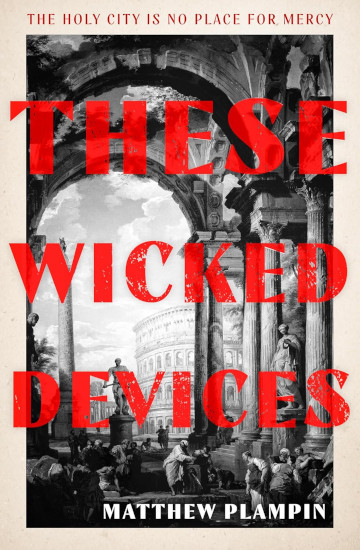
The month starts with The Piazza Murders by Michael Jecks on the 1st. There’s no more information yet, but probably expect murder in Italy.
Five books are published on 3 July. In These Wicked Devices by Matthew Plampin it’s 1650 and in Rome Olimpia Maidalchini may be losing her grip on Pope Innocent X. Two destitute nuns arrive, each carrying secrets that could destroy them. And Diego Velázquez’s assistant is drawn into a conspiracy which could bring Italy to its knees. As the summer heat rises, survival, not salvation, becomes the ultimate goal.
It’s 1599 in Sinners by Elizabeth Fremantle and Beatrice Cenci yearns to escape the clutches of her abusive father. Determined to find a way back to Rome, she enlists the help of Olimpio, the castle’s keeper. Pregnant by her lover, incarcerated in a remote castle by her father, and brim-full of white-hot rage, she will stand tall in the face of the violence of men, no matter the cost.
And Matthew Harffy‘s Shadows of the Slain appears in paperback. Beobrand is escorting a party of pilgrims to Rome. The roads heading south are filled with danger and he finds himself reluctantly responsible for more pilgrims’ safety. But when Beobrand reaches the snakepit of ruins and relics that is Rome, his difficulties truly begin… and his homeland has never been further away. Read Matthew’s feature about Rome in the 7th century.
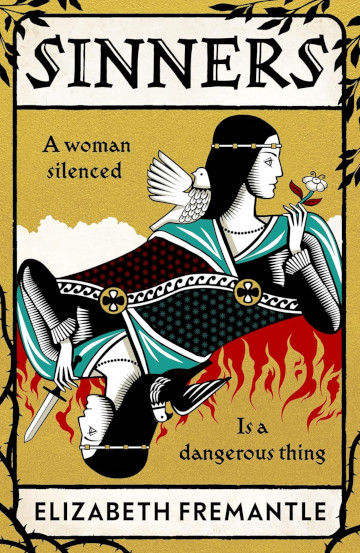
Also in paperback on the 3rd is A Good Deliverance by Toby Clements. Imprisoned in Newgate, Sir Thomas Malory — politician, courtier, outlaw, renowned author of Le Morte D’Arthur — confesses the secrets of his perilously exciting life of sieges, battles and court intrigue to the gaoler’s son and, in doing so, reveals the events that led to his great work of fiction.
Finally, AJ West‘s The Betrayal of Thomas True gets paperback release. In 1710 Thomas is drawn into the underworld of London’s molly houses. Gabriel struggles to hide his double life as Lotty, the mollies’ guard, and a carpenter. But being gay can get you hanged, and someone is betraying the mollies. Can Gabriel unmask the traitor before it’s too late? Can he save hapless Thomas… and their impossible love?
It’s 1941 in The Secret Locket by Catherine Hokin, out on 7 July. Pascal has given Noemi his mother’s locket, a symbol of their love. But she’s Jewish and he fights for the Nazis; soon they must part. When Pascal realises the truth about the Nazis he vows to make amends. But with war still raging, will Pascal be strong enough to find Noemi? And if he does, will she ever truly forgive him for his past? Catherine investigates what happened in cities during WWII for Historia.
On 10 July in The Art of a Lie by Laura Shepherd-Robinson it’s London in 1749. After her husband’s murder Hannah Cole struggles to keep her confectionary shop in profit. Could a delicacy called iced cream save it? But Henry Fielding, magistrate and author, suspects her husband’s money was illicitly got and draws her into a battle of wits more devastating than even her husband’s murder.

The same day sees The Case of the Mad Doctor by PD Lennon. On Jamaica, people have started disappearing. In Bristol, ambitious Black barrister’s clerk Isaiah Ollenu and pious insurance agent Ruben Ashby are ordered to the Caribbean to investigate. But, confronted by prejudice, untoward characters and vengeful spirits, the task may cost this unlikely duo more than either man is willing to pay. Read Paula’s feature about the bizarre true story behind her book.
Love and Other Poisons by Lesley McDowell is in bookshops on 17 July. 1857, Glasgow, and Madeleine Smith, tried for murdering her lover, is famously freed after a Not Proven verdict. 1927, New York; Hollywood film scout Harry Townsend believes he has found her. He wants to tell her story on film. Since her trial she has lived under many names — then, in 1890, she disappeared. But Madeleine has one last secret to reveal… Lesley’s writing us a piece about women murderers.
Also on the 17th, The Best of Intentions by Caroline Scott takes us to 1932, when gardener Robert Bardsley starts working at Greenfields, a Gloucestershire community of artists and idealists. Then the residents discover that their orchard’s been sold to a rapacious property developer. Can they find a way to keep their creative community alive? Or will its spirit be crushed?

On 23 July Wartime Comes to West India Dock Road by Renita D’Silva is published. In 1941, as the bombs fall and the East End burns, the residents of West India Dock Road must rely on each other like never before. Charity’s brother runs away to enlist. Divya yearns for news of the man she loves. Friendships will be tested, love will be lost and found, and new courage will be discovered.
The Secrets of Dragonfly Lodge by Rachel Hore is out on 31 July. Nancy Foster has harboured a devastating secret that shattered her professional and personal life. Journalist Stef Lansdown realises that she has the power to restore Nancy’s reputation and to heal the wounds, if only Nancy will trust her. But someone else wants to get to the bottom of the story first — someone who doesn’t want it to be told. We’ll have a feature by Rachel on the inspiration for her book soon.
On the same day Chain Reactions by Lucy Jane Santos is out in paperback. It tells the stories found throughout uranium’s history, from glassworks to penny stocks, medicines to weapons, a thing to be feared to a powerful source of energy. By understanding our nuclear past, we can encourage a more nuanced dialogue about whether it is feasible — and desirable — to have a nuclear-powered future. Lucy’s written about researching the unexpected effects atomic testing had on the city of Las Vegas.
August
On 5 August, in The Children of Zagreb by Lelita Baldock, Ilona and Jovan are planning a life together when the Nazis invade Zagreb and they’re forced apart. Ilona works to help her city’s sick and injured. She learns of camps of Serbian children, separated from their families. Horrified, she is determined to help them and joins Aktion Diana B. But how many children can they save? And what has become of Jovan?
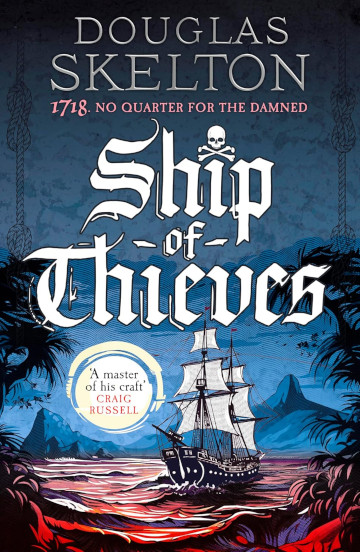
Also on the 5th, in The Face Stealer, Sarah Rayne‘s third Theatre of Thieves novel, the irrepressible Fitzglens are drawn into a search for missing sculptures — the fabled Stone Heads, created at the Russian Court in the mid 18th century, and the heart of a very sinister and macabre legend.
What is England, and who are the English? Bede: the Man who Invented England by Edoardo Albert is a biography of the man who first posed, and tried to answer, these questions. It examines Bede’s life in 7th- and 8th-century Northumbria as well as those of the monks and nuns, warriors and kings, farmers and merchants who made up the kingdoms in the contested realm of Britain. It’s out on 7 August.
As is the paperback edition of The Mischief Makers by Elisabeth Gifford. Daphne Du Maurier is caught in a love affair that threatens her marriage, and worried about a family friend, JM Barrie. In her own writing, a character called Rebecca seems uncomfortably like her husband’s ex. Daphne must confront the dark truth beneath Peter Pan as well as her own secrets — or her next great work may be lost to history.
On 14 August in Blood Vengeance by Douglas Jackson, the third of his Warsaw Quartet novels, Investigator Jan Kalisz of the Warsaw Kripo is flown into Arisaig, the WWII training centre in the West of Scotland, to investigate the murder of Polish SOE agent Krystina Kowolska. But Krystina had her demons – and her enemies. Was she the hero her record suggests or the traitor the whispers hint at?

Douglas Skelton‘s Company of Rogues returns on 21 August with Ship of Thieves. Jonas Flynt’s stepmother is abducted from Edinburgh and carried back to the West Indies by her former owner. His father pursues them, but Jonas follows. In the Caribbean Jonas unwittingly joins forces with the most notorious pirate of all time, Blackbeard. But on the high seas he may be out of his depth.
28 August sees Boudicca’s Daughter by Elodie Harper in the shops. Boudicca, Queen of the Iceni tribe, led one of history’s greatest revolts. But what of the woman who grew up in her shadow? Whose desperate bid for survival will take her from Britain’s sacred marshlands to the glittering façades of Nero’s Roman Empire. Born to a legend. Forced to fight. Determined to succeed. Solina, Boudicca’s daughter.
The House of Fallen Sisters by Louise Hare is also published on 28 August. We’ll have more details when they’re available.
September
Three books are released on 4 September. In The Stolen Crown: Treachery, Deceit and the Death of the Tudor Dynasty, Tracy Borman argues that Elizabeth Tudor went to her grave without formally naming an heir. The notion of an approved succession from Tudors to Stuarts is little more than an elaborately constructed fiction, and James VI and I’s rule in England began with a lie.
The fifth in Vaseem Khan‘s Malabar House series, City of Destruction, is out in paperback. In Bombay in 1951, Persis Wadia kills a would-be assassin and sidelined in the hunt for his co-conspirators. She’s given another case — which leads her to New Delhi, where ancient and modern India openly clash.. Meanwhile Archie Blackfinch is fighting for his life as the country tears itself apart in the prelude to war.

The Royal Rebel by Elizabeth Chadwick is published in paperback. It’s 1338 and Jeanette of Kent, Edward III’s cousin, is in Antwerp, where she and household knight Thomas Holland fall in love. They marry in secret, but Thomas must go war, and Jeanette is forced into a second marriage. Then Thomas returns, and, as hostile family members battle to keep the couple apart, the defiant lovers vow to be reunited.
9 September sees the first in a new series by Victoria Dowd, Death in the Aviary. December 1929, and young back-room journalist Charlotte Blood is sent to Ravenswick Abbey on Dartmoor to investigate the murder of the family’s heir — in a locked lift. Her search must unravel the mystery and with it the terrible truth behind the Ravenswicks. It will also reveal some of the dark secrets that lurk in her own life…
Four books are out on 11 September. In The Seeker of Lost Paintings by Sarah Freethy art dealer Jude Adler learns that intriguing Beatrice Fremont owns a torn fragment of what could be a Caravaggio. Jude is caught in a search across Europe. Beatrice sees her quest for the missing painting as a chance to uncover the story of her parents’ passionate love affair — and a shocking secret hidden for hundreds of years.
Nemesis: Medieval England’s Greatest Enemy by Catherine Hanley is the tale of Philip Augustus, one of medieval Europe’s greatest monarchs, and the part he played in the downfall of four Plantagenet kings of England: Henry II, Richard I, John and Henry III. It shows how Philip exploited the Plantagenets’ squabbles to secure his grip on France, and turned his realm into a powerhouse of Europe.
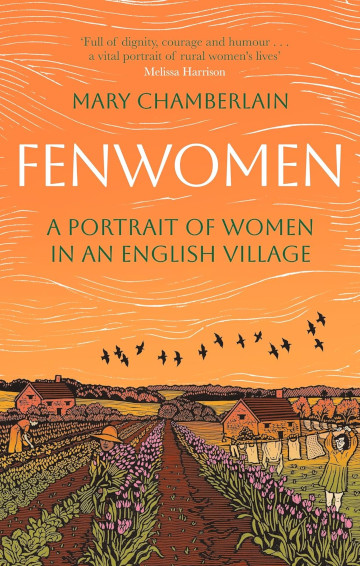
And Catherine‘s 1217: The Battles that Saved England is released in paperback on the same day. It charts the tumultuous events that strengthened England’s national identity. With the child Henry III now King under William Marshall’s regency and the French Prince Louis’s invasion losing support, the fortress of Dover was besieged, the city of Lincoln was attacked, and a great invasion force was stopped at sea. Read Catherine’s feature about chivalry in this turbulent era.
Still on the 11th, the first book published by Virago, Fenwomen: A Portrait of Women in an English Village by Mary Chamberlain, is reissued to mark the imprint’s 50th anniversary. It’s a social and oral history of the lives of the women of Gislea, an isolated village in the Fens. From the very young to the very old, the women talk to Mary about their lives, which spread (in memory at least) over 150 years.
In war-ravaged France in 1358, King John II is the prisoner of the King of England. His son, the teenaged Dauphin, is fighting King Charles of Navarre for power. Among all this, John Hawkwood’s free company of English men and boys must, somehow, survive. Michael Jecks‘s latest Vintaine novel, Ashes of Rebellion, hits the shelves on 19 September.
On 23 September in A Dark and Deadly Journey by Julia Kelly typist-turned-field agent Evelyne Redfern and her partner, David Poole, fly to Portugal to find a missing British Intelligence informant with a secret. They must keep their cover intact among Lisbon’s glittering wealthy expats and dangerous spies. This case will test Evelyne and David’s training, charm, and wit — and their growing attraction for one another.
Spycraft: Tricks and Tools of the Dangerous Trade from Elizabeth I to the Restoration by Nadine Akkerman and Pete Langman gets its paperback edition on the same day. It explores the methods spies used in the Early Modern period, including disguises, invisible inks, and poisons, and shows how the innovations of petty criminals, secretaries, and other hitherto invisible actors shaped history.
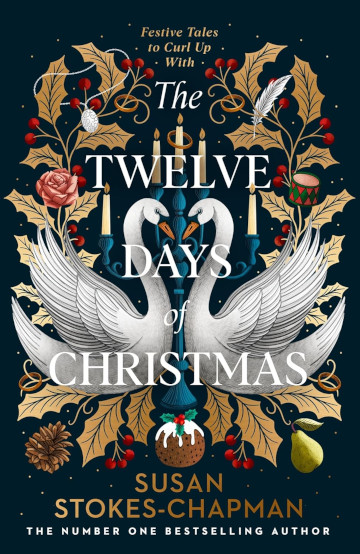
On 25 September The Twelve Days of Christmas by Susan Stokes-Chapman is set in the village of Merrywake. As the Viscount’s Twelfth Night Ball draws closer, many of the villagers have a story to tell. Written in tribute to Jane Austen and Georgette Heyer, this short story collection reimagines each of the traditional carol’s gifts. Will the Viscount’s guests solve their challenges and mysteries before the ball?
Growing up in 18th-century Whitehaven, Kit Ravenglass has to hide the shame of his mother’s mysterious death as well as his passion for female fashion in Ravenglass by Carolyn Kirby, out on the 25th. But his father’s venture into the slave trade thrusts Kit on a journey north and into life as a woman. This identity is tested when Kit risks everything to unravel the Ravenglass family’s secrets and find a way of living freely.
In paperback on the same day, Keith Lowe‘s Naples 1944 is the story of the first major European city to be liberated by the Allies. Naples suffered destruction by the Germans and Allied bombing; then Vesuvius erupted. The first major history of wartime Naples to appear in English, this book contains many stories that have never been published in any language and places Naples at the heart of WWII Italian history. Read Keith’s piece about the events of 1944.
The fifth Miss Clara Vale mystery by Fiona Veitch Smith will be in bookshops this Autumn.
October
Out on 9 October, Matthew Harffy‘s Dominion of Dust sees warrior-monk Hunlaf and his crew in 797 on a voyage to acquire an important Christian relic before it falls into the hands of the Byzantines. Betrayed, they turn instead for Jerusalem. Can they secure a holy treasure, outwit the zealous agents of Byzantium, and avoid a grisly death at the hands of the local rulers in a deadly race against time?

On the same day Atlantic Furies: The Women who Risked Everything to be the First to Fly by Midge Gillies is the story of the six female aviators who battled to become the first woman to cross the Atlantic Ocean by plane. Elsie Mackay, Lady Anne Savile, Frances Grayson, Ruth Elder, Amelia Earhart, and Mabel Boll each pushed against every boundary, every prejudice, to achieve their seemingly impossible dream.
The paperback edition of The Twelve by Liz Hyder is out on 9 October. Kit’s on holiday with her mum and sister Libby. But when Libby vanishes, and no one else remembers her, Kit faces a new reality — one where her sister never existed. Then she meets Story, a local boy who remembers Libby. Entering a world filled with ancient folklore, can they uncover the secret of the Twelve and rescue Libby before Time runs out? The Twelve has won the 2025 Nero Book Award for Children’s Fiction.
The Hunters Club by Alis Hawkins is on bookshelves on 16 October. In the third of her Oxford Mysteries, it’s 1883 and Basil Rice must investigate a scandal — which threatens to expose his own private life. Non Vaughan hopes to help a falsely-imprisoned undergraduate. The discovery of a secret society, and a murder, cause Non and Basil to join forces. But is justice possible in a world so unjust and dangerous?
30 October sees The Formidable Women Who Shaped Medieval Europe: Power and Patronage at the Burgundian Court by Susan Abernethy. The formation of the Burgundian Empire by the four Valois Dukes of Burgundy would not have happened without the women in their lives. They acted as governors and regents, engaged in cultural, religious and political patronage, and aided their husbands in war.
Vichy’s Last Castle: Pétain’s Puppet Regime in Exile at Sigmaringen by Paul StJohn Mackintosh gets its paperback release on 30 October. See 15 April for details.
November
On 6 November Emma Darwin‘s The Bruegel Boy is out. In 1566, political rebellion and image-smashing sweep Flanders and Holland; young Gillis Vervloet, model and muse to Pieter Bruegel, almost doesn’t survive. Onward 60 years, and Gil wants only to enter a monastery and live out his days in peace. But first he must save himself from the Inquisition by accounting for his life with Bruegel and his impossible love. We’ll have a feature by Emma near publication day.
December
This month sees the republication of Pilgrim’s War by Michael Jecks. France, 1096, and the Hermit is recruiting pilgrims to travel to Jerusalem. Sybille must follow her reckless husband on the journey. Odo wants to show his piety; his brother Fulk seeks adventure. Jeanne and Guillemette hope for redemption. Who will live to see Jerusalem – and will the sacrifices they make to get there be worth the price?
The Dark Spring, Clare Grant‘s second Ada Fawkes novel, is likely to be published this winter. See 31 January for details about the first in the series.
Thank you for reading this far! I hope you’ve found something you’d like this year.
If you see a book you’d like to buy, or persuade your library to get, please consider ordering it before the publication day. That will mean you read it as soon as it’s out — and it also gives the author a sales boost on their first day, which, along with reviewing their book, is a really good way to show your appreciation.
This page will be regularly updated as more information comes in, so do come back and have another look.
And you can keep up with new books as they’re published by checking Historia’s Latest releases column.
Happy reading!




